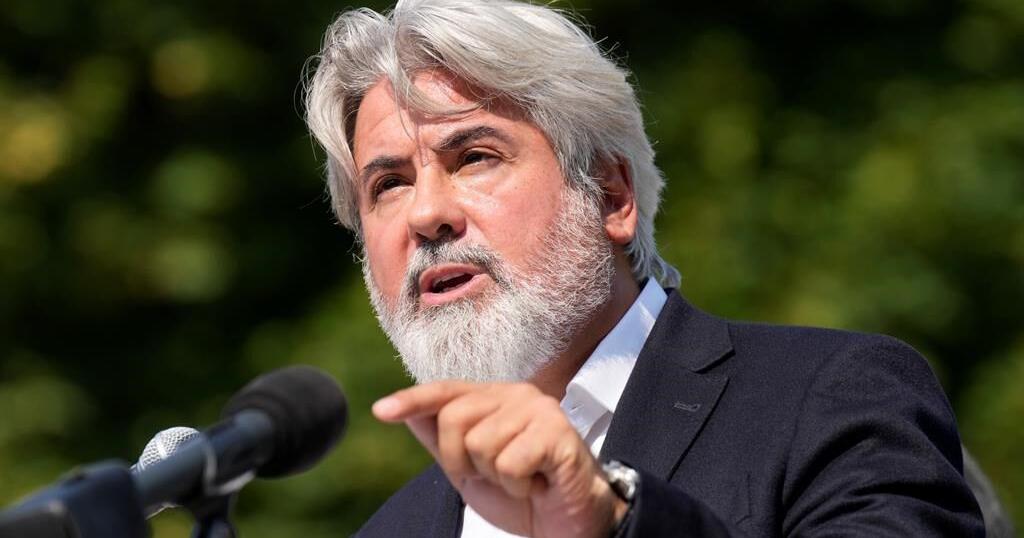OTTAWA – Treasury Board President Anita Anand has been sworn in as federal transport minister at a ceremony at Rideau Hall, taking over a portfolio left vacant after Pablo Rodriguez resigned from cabinet and the Liberal caucus on Thursday.
Anand thanked Rodriguez for his contributions to the government and the country, saying she’s grateful for his guidance and friendship.
She sidestepped a question about the message it sends to have him leave the federal Liberal fold.
“That is a decision that he made independently, and I wish him well,” she said.
Prime Minister Justin Trudeau was not present for the swearing-in ceremony, nor were any other members of the Liberal government.
The shakeup in cabinet comes just days after the Liberals lost a key seat in a Montreal byelection to the Bloc Québécois and amid renewed calls for Prime Minister Justin Trudeau to step down and make way for a new leader.
Anand said she is not actively seeking leadership of the party, saying she is focused on her roles as minister and as MP.
“My view is that we are a team, and we are a team that has to keep delivering for our country,” she said.
The minority Liberal government is in a more challenging position in the House of Commons after the NDP ended a supply-and-confidence deal that provided parliamentary stability for more than two years.
Non-confidence votes are guaranteed to come from the Opposition Conservatives, who are eager to bring the government down.
On Thursday morning, Rodriguez made a symbolic walk over the Alexandra Bridge from Parliament Hill to Gatineau, Que., where he formally announced his plans to run for the Quebec Liberal party leadership.
He said he will now sit as an Independent member of Parliament, which will allow him to focus on his own priorities.
“I was defending the priorities of the government, and I did it in a very loyal way,” he said.
“It’s normal and it’s what I had to do. But now it’s more about my vision, the vision of the team that I’m building.”
Rodriguez said he will stay on as an MP until the Quebec Liberal leadership campaign officially launches in January.
He said that will “avoid a costly byelection a few weeks, or months, before a general election.”
The next federal election must be held by October 2025.
Conservative Leader Pierre Poilievre said he will try to topple the government sooner than that, beginning with a non-confidence motion that is set to be debated Sept. 24 and voted on Sept. 25.
Poilievre has called on the NDP and the Bloc Québécois to support him, but both Jagmeet Singh and Yves-François Blanchet have said they will not support the Conservatives.
Rodriguez said he doesn’t want a federal election right away and will vote against the non-confidence motion.
As for how he would vote on other matters before the House of Commons, “it would depend on the votes.”
Public Services and Procurement Minister Jean-Yves Duclos will become the government’s new Quebec lieutenant, a non-cabinet role Rodriguez held since 2019.
This report by The Canadian Press was first published Sept. 19, 2024.
— With files from Nojoud Al Mallees and Dylan Robertson
